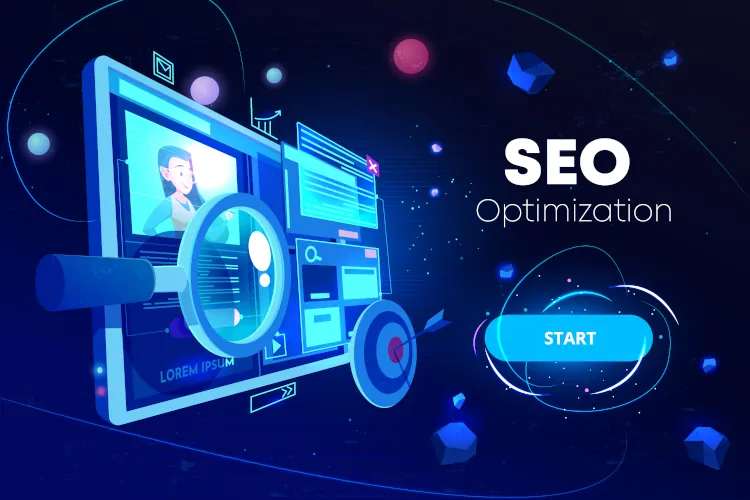How Is AI Shaping the Future of SEO?

Seth Godin, bestselling author and celebrated digital marketer, calls AI the “electricity of the twenty-first century.”
Much has been said about AI, but Seth’s statement is not a hyperbole. Internet search has changed for good, and artificial intelligence is the engine driving this change. SEO-as-usual no longer works, making it crucial for businesses to understand how AI has revolutionized search and how they can adapt to stay ahead.
Since AI’s inception, we have seen rapid changes in how content is ranked and how consumers interact with it. In this article, we help you understand these changes. We will also briefly examine how AI has reshaped search, and share insights businesses can use to customize their SEO strategies.
From Matching Keywords to Understanding Intent – Search Engines Are Much Smarter Now

Understanding the Context
Google’s BERT and RankBrain leverage natural language processing (NLP) and machine learning to understand user intent and deliver the most relevant search results.
The United States Patent (US11769017B1) filed by Google introduces advanced methods for analyzing queries and establishing the relevance of results. According to the patent, “Implementations disclosed herein are directed to at least selectively utilizing an LLM in generating an NL-based summary to be rendered (e.g., audibly and/or graphically) in response to a query (e.g., a submitted query or an automatically generated query).”
This patent underscores the evolution of AI-powered search engines, highlighting how they’ve become increasingly intelligent in refining results that are logically ranked and personalized to ensure users receive the most optimal experience.
Then Vs Now
Earlier, search engines crawled content on websites, looking for specific keywords to determine their relevance in search results. So, using the right keywords would do the trick. For instance, including “best ice cream in Los Angeles” on your page would direct people searching for ice cream in Los Angeles to your page. That’s no longer the case—at least, not as much as before.
AI-powered modern search algorithms seek to understand the “meaning” behind a search query. This has led to a seismic shift in SEO priorities. Businesses must focus on content that provides value and answers users’ queries satisfactorily. Merely including a list of SEO keywords and offering “average” information is not enough anymore.
Your page should answer precise questions like “Where can I find whole milk ice cream with real fruit near me?”
Clearly, keywords are not everything. So, what should you do? Here’s your new checklist.
Updated Checklist
SEO Optimizations to Focus On
AI is ushering in a new era in search and redefining SEO and SEO tools. From content optimization to technical audits to competitor analysis, AI tools are transforming SEO.
SEO Interventions: AI-powered SEO tools are revolutionizing how businesses approach SEO. These advanced tools can analyze top-performing competitor pages to offer data-backed recommendations to enhance your content’s relevance and performance. Moreover, AI can pinpoint underlying issues such as slow loading speeds or broken links—issues that could hinder your site’s ability to rank effectively.
Data-Based Decisions: In a landscape driven by data, AI’s ability to process vast amounts of information is invaluable. By identifying emerging trends, AI allows businesses to base their content plans, ad spending, and overall strategies on predictions that can give them an edge—often before competitors recognize the shift.
Embrace Voice Search
According to Statista, 8.4 billion voice assistant units are expected to be used worldwide. More than 20% of the world uses Alexa, Siri, and Google Assistant to search, shop, and manage their life. Local searches are a major chunk of these voice searches, which makes them even more pertinent for local businesses.

This meteoric growth in voice search has led to a definitive shift in how people interact with search engines. Unlike text queries, voice searches are more conversational. This rapid rise in voice search is changing the very nature of how people search and by extension, how businesses must present themselves online.
Unlike traditional text-based queries, voice searches are more conversational. Consequently, businesses must adapt their content strategies. Instead of optimizing for keywords like “best ice cream near me,” businesses should focus on more natural-sounding, spoken queries like: “Can I find organic whole milk ice cream right now?”
Keeping your Google Business Profile updated is also critical in this context. Ensuring that your location, hours of operation, and other key details are accurate and readily available will help your business remain visible and accessible to voice search users.
Enhancing User Experience
As we mentioned earlier, there’s a “seismic shift” in SEO priorities. The focus is no longer solely on ranking high on Google—it’s about creating a seamless, user-friendly experience. Businesses now have to focus on creating a seamless experience for their users. AI plays a critical role in analyzing user interaction with your website, social media pages, and other digital touchpoints.
Tools like Crazy Egg and Hotjar provide invaluable insights into user behavior, allowing businesses to refine their websites for optimal interaction.
Conclusion
SEO strategies that fail to employ AI tools will struggle to keep pace with the evolving search landscape. As search engines continue to become more intelligent, businesses must adapt by embracing smarter tools and algorithms that align with the future of SEO.
While this shift may initially present challenges, businesses that prepare for it will ultimately gain a competitive advantage. By understanding and leveraging AI, companies can stay ahead of the curve, delivering more relevant and engaging customer experiences. SEO is not disappearing—it’s being enriched by AI, and it’s up to businesses to stay informed, prioritize their customers, and deliver the content and experiences they seek.
At this juncture, it is paramount that businesses stay informed, prioritize their customers, and embrace the change. If you do it, your business will thrive.

Leave a Reply